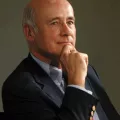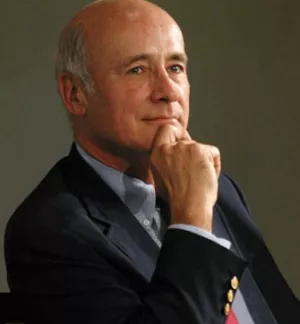September 11, 2001 is one of those dates that mark a transformation in world politics. Just as the fall of the Berlin Wall on November 9, 1989, signified the Cold War's end, Al-Qaeda's attack on the United States opened a new epoch. A non-governmental group killed more Americans that day than the government of Japan did with its surprise attack on another transformative date, December 7, 1941. While the jihadi terrorist movement had been growing for a decade, 9/11 was the turning point. Five years into this new era, how should we characterize it?
Some believe that 9/11 ushered in a "clash of civilizations" between Islam and the West. Indeed, that is probably what Osama bin Laden had in mind. Terrorism is a form of theater. Extremists kill innocent people in order to dramatize their message in a way that shocks and horrifies their intended audience. They also rely on what Clark McCauley and others have called "jujitsu politics," in which a smaller fighter uses the strength of the larger opponent to defeat him.
In that sense, bin Laden hoped that the US would be lured into a bloody war in Afghanistan, similar to the Soviet intervention two decades earlier, which had created such a fertile recruiting ground for jihadists. But the Americans used a modest amount of force to remove the Taliban government, avoided disproportionate civilian casualties, and were able to create an indigenous political framework.
While far from perfect, the first round in the fight went to the US. Al-Qaeda lost the sanctuaries from which it planned its attacks, many of its leaders were killed or captured, and its central communications were severely disrupted.
Then the Bush administration succumbed to hubris and made the colossal mistake of invading Iraq without broad international support. Iraq provided the symbols, civilian casualties, and recruiting ground that the jihadi extremists had sought in Afghanistan. Iraq was George Bush's gift to Osama bin Laden.
Al-Qaeda lost its central organizational capacity, but it became a symbol and focal point around which like-minded imitators could rally. With the help of the Internet, its symbols and training materials became easily available around the world. Whether or not Al-Qaeda had a direct role in the Madrid and London bombings, or the recent plot to blow up airliners over the Atlantic, is less important than the way it has been transformed into a powerful "brand." The second round went to the extremists.
The outcome of future rounds in the struggle against jihadi terrorism will depend on our ability to avoid the trap of "jujitsu politics." That will require more use of the soft power of attraction rather than relying so heavily on hard military power, as the Bush administration has done. For the struggle is not a clash of Islam vs. the West, but a civil war within Islam between a minority of terrorists and a larger mainstream of non-violent believers.
Jihadi extremism cannot be defeated unless the mainstream wins. Military force, intelligence, and international police cooperation needs to be used against hardcore terrorists affiliated with or inspired by Al-Qaeda, but soft power is essential to attracting the mainstream and drying up support for the extremists.
US Secretary of Defense Donald Rumsfeld once said that the measure of success in this war is whether the number of terrorists we are killing and deterring is larger than the number that the terrorists are recruiting. By this standard, we are doing badly. In November 2003, the official number of terrorist insurgents in Iraq was given as 5,000. This year, it was reported to be 20,000. As Brig.-Gen. Robert Caslen, the Pentagon's deputy director for the war on terrorism, put it, "we are not killing them faster than they are being created."
We are also failing in the application of soft power. According to Caslen, "we in the Pentagon are behind our adversaries in the use of communication—either to recruit or train."
The manner in which we use military power also affects Rumsfeld's ratio. In the aftermath of 9/11, there was a good deal of sympathy and understanding around the world for America's military response against the Taliban. The US invasion of Iraq, a country that was not connected to the 9/11 attacks, squandered that good will, and the attractiveness of the US in Muslim countries like Indonesia plummeted from 75 percent approval in 2000 to half that level today. Indeed, occupying a divided nation is messy, and it is bound to produce episodes like Abu Ghraib and Haditha, which undercut America's attractiveness not just in Iraq, but around the world.
The ability to combine hard and soft power is smart power. When the Soviet Union invaded Hungary and Czechoslovakia during the Cold War, it undercut the soft power that it had enjoyed in Europe in the aftermath of World War II. When Israel launched a lengthy bombing campaign in Lebanon last month, it created so many civilian casualties that the early criticisms of Hizbullah by Egypt, Jordan, and Saudi Arabia became untenable in Arab politics. When terrorist excesses killed innocent Muslim civilians such as Egyptian Islamic Jihad did in 1993 or Abu Musab al-Zarqawi did in Amman in 2005, they undercut their own soft power and lost support.
The most important lesson five years after 9/11 is that failure to combine hard and soft power effectively in the struggle against terrorism will lead us into the trap set by those who want a clash of civilizations. Muslims, including Islamists, have a diversity of views, so we need to be wary of strategies that help our enemies by uniting disparate forces behind one banner. We have a just cause and many potential allies, but our failure to combine hard and soft power into a smart strategy could be fatal.
Joseph S. Nye is a professor at Harvard and author of Soft Power: The Means to Success in World Politics. This commentary is published in cooperation with Project Syndicate.
Nye, Joseph. “Round by Round: Winners and Losers in the Post-9/11 Era.” Daily Star, September 6, 2006



